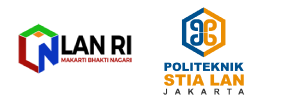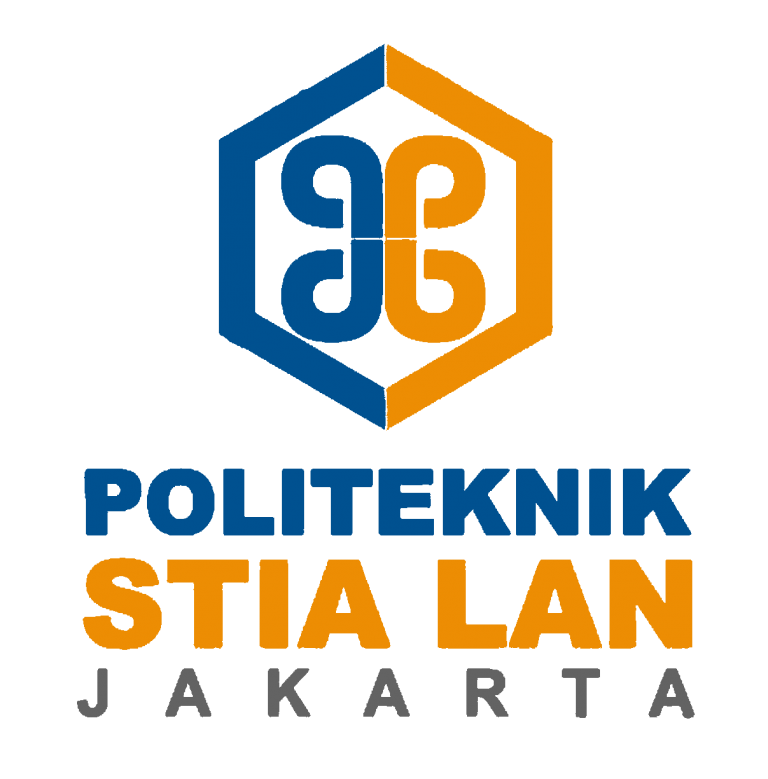State Development Administration focuses on administrative and development science related closely to government policy and development studies. This study program conducts applied research and publishes scientific articles that contribute to the practices of development and administration, also the improvement of governance. It aims to accelerate the enhancement of both the quality of bureaucracy and the quality of community welfare.
VISSION
Becoming a leading vocational and professional study program in the field of development administration for governance and development that focuses on creating development policy analysts whose functions as drivers of the spirit of change and forming part of the policy ecosystem with local, national, and global perspectives.
MISSIONS
- Organizing vocational and professional higher education that are able to produce graduates with theoretical and practical understanding capacity in state development administration practices to increase the competitiveness of graduates as policy analysts development at the local, national, and global levels;
- Conducting scientific research and developing the applied scientific study on innovative state development administration field that contribute to the public policy process and the effectiveness and efficiency of development;
- Delivering community service to strengthen the domain program of increasing community capacity, empowerment, and creating added value;
- Developing scientific and applied studies that produce scientific works in the field of state development administration as an effort to link the academic and practical needs;
- Building professional and academic capacities to create an excellent graduate profile in the field of policy analysis and development;
- Increasing cooperation at the national and regional levels to strengthen the state development administration study program
CURRICULUM
Subjects/courses in the State Development Administration Study Program consist of General Compulsory Subjects (MKWU), Institutional Subjects, Core Subjects, and Crossed-Study Program Subjects, with a total of 144 credits. Subjects are distributed in packages of 7 (seven) semesters. The distribution of subjects per semester is as follows:






LEARNING OUTCOMES
Character
- Interact and communicate effectively, both scientifically and practically;
- Upholding morality and piety towards God;
- Internalizing academic values, norms, and ethics;
- Performing role as citizens whose dignity and pride for the country, upholding nationalism and a sense of responsibility to the state and nation;
- Respecting the diversity of cultures, perspectives, religions and beliefs, as well as the original opinions or findings of others;
- Contributing to improving the quality of life in society, nation, state, and the advancement of civilization on a value basis of Pancasila;
- Developing the ability to cooperate and have a social concern as well as empathy for community and environment;
- Obeying the law and discipline as citizens;
- Internalizing the spirit of independence, struggle, and entrepreneurship;
- Demonstrating an attitude of work responsibility in the field of expertise independently;
- Internalizing professionalism and integrity.
Cognitive Domain
- Mastering general theoretical concepts of political science and social theory;
- Mastering theoretical concepts of administration, development, organization, bureaucracy, public policy, public services, organizational behavior, state finances, administrative reform, public governance, archive, and asset management;
- Mastering macroeconomic principles, state administrative law, risk management, and public administration ethics;
- Mastering qualitative and quantitative research methods including survey methods, field research, case studies, document studies, also specified and technical research of policy, development administration, archive, and asset management;
- Mastering the principles and techniques of persuasive communication, both oral and written.
General Skill
- Applying logical, critical, systematic, and innovative thinking in the context of science & technology development and implementation of humanities values in accordance with a certain field of expertise;
- Ability to demonstrate an independent, quality, and measurable performance;
- Assessing the implications of science & technology development and implementation on humanities values in accordance with a certain field of expertise and the basis of scientific principles, procedures, and ethics to produce solutions or ideas;
- Arranging scientific research in the form of an undergraduate thesis or final project report;
- Ability to formulate decisions appropriately in the context of problem-solving in accordance with a certain field of expertise, based on the results of analysis of information and data;
- Ability to maintain and develop networks with mentors, colleagues, and peers both at internal and external institutions;
- Ability to perform responsibility in leading teamwork; supervise and evaluate the completion of work assigned to workers under their responsibility;
- Ability to carry out self-evaluation process of the work group under their responsibility, and able to manage learning independently;
- Ability to manage data documentation, storing, securing, and recovering to ensure validity and prevent plagiarism.
Specific Skills
- Ability to arrange research design and policy analysis;
- Ability to make instruments for research and policy analysis;
- Ability to collect data and information for policy studies and analysis;
- Ability to arrange research reports and policy analysis;
- Ability to arrange policy recommendations;
- Ability to arrange policy briefs and publication materials;
- Ability to analyze interactions between actors in public governance such as in policy making, and public service management, both at the local and national levels, in the social, economic, cultural, political and defense aspects with a political economy approach;
- Ability to identify public interests in the public policy cycle, both at the local and national levels;
- Ability to analyze and evaluate public policies using principles, quantitative methods (including cost-benefit analysis, analytical hierarchy process) and qualitative methods (including participatory impact analysis, case studies) in the entire policy cycle (formulation, implementation, and evaluation);
- Ability to review relevant regulations and policy analysis results in the form of policy notes, policy briefs, or policy papers to produce policies draft;
- Ability to disseminate policy products and gather public participation in public policy implementation at least by using social media;
- Ability to organize (plan, prepare budgets, allocate resources, implement, and evaluate) activities in the context of public policy implementation and the betterment of public service performance;
- Ability to analyze risks and implement risk mitigation programs for policy implementation;
- Ability to propose ideas on policy reform and public service management.
- Ability to perform a critical analysis of policy to create quality public policy analysis and recommendation;
- Ability to manage policy innovation and design quality development plans both conceptually and technically to perform an effective and efficient development implementation;
- Ability to analyze and formulate recommendations for development policies in accordance with the systems and multi-perspective determining factors;
- Ability to collect and analyze development planning data, potential, and problems;
- Ability to formulate plans for development activities;
- Ability to arrange a budget plan;
- Ability to arrange progress reports on the implementation of activities;
- Ability to design and manage development innovation;
- Ability to analyze, and design project plans, benefits, impacts, and evaluation;
- Ability to arrange SOP and monitoring-evaluation procedures;
- Ability to manage networking and facilitate community-based development programs
GRADUATE PROFILE & PROFESSIONAL CERTIFICATION
Graduates are expected to take part in particular fields of expertise or work after completing their studies. Varied competencies are required to perform policy development analysis. The main graduate profile of the State Development Administration Study Program is a development policy analyst.
All candidates of graduates are required to take a professional certification to acquire competencies as a professional development policy analyst. The following are competence units as regulated in Indonesia’s Occupational Qualification Standard:
- Making policy analysis and study instruments;
- Collecting data and information for studies and policy analysis
- Arranging policy analysis and study reports;
- Publishing policy papers;
- Linking and analyzing information from various primary and secondary sources;
- Composing briefing materials;
- Arranging the design of the policy study and analysis;
- Presenting the latest research information;
- Collecting development planning data;
- Performing communication at work;
EXCELLENT WORK PROGRAM
- Applied-based curriculum development;
- Performing education and training for lecturers and students;
- Enhancing the quality of blended learning (online-offline learning);
- Performing a professional certification;
- Delivering academic and non-academic services;
- Hosting/co-hosting seminars and conferences (national/international).



